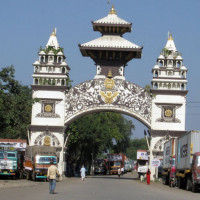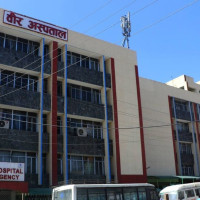- Tuesday, 3 March 2026
Sole Swallow, No Summer Sight
In a stunning display of electoral politics, Nitish Kumar has become chief minister of India’s Bihar state for a record tenth time. Prime Minister Narendra Modi’s Bharatiya Janata Party (BJP)-led National Democratic Alliance (NDA) and its partner Janata Dal (United) combined to register an overwhelming majority. The two-phase election outcome for the 243-seat assembly this month gives 202 seats to the ruling side, among whose constituents the BJP secured 89 seats and the JD (U) 85 seats. Rastriya Janata Dal (RJD), the main constituent of the opposition front, Mahagathbandhan, suffered a drubbing, obtaining 35 seats.
As for the Indian National Congress, its pathetic tally of six seats has raised questions in sections of the opposition camp and political analysts as to whether Rahul Gandhi would be able to hold the country’s oldest existing party intact by the time the next general election takes place in 2029. Opposition groups and some in the media tried projecting the assembly election as a referendum on the Modi government at the centre in a deliberate exercise in exaggeration. A lone state assembly poll outcome cannot be held as a referendum. For that matter, defeat in several state assembly elections, separated by a fair interval between them, too, cannot be taken as confirmation of the union government’s nationwide unpopularity.
Whenever a party loses a state election, the hackneyed answer from the losing side is that state elections and federal elections are two different exercises. That is true, except that the argument is put forth by the defeated side.
Nerve-wracking
Efforts to equate an assembly election with a national referendum on the union government are absurd. Indeed, a series of losses in many vital states over a short period could indicate the general voter mood across the country. The next general election is three and a half years away. Between now and then, much water can flow in the Ganges but the current situation does not offer a definitive pattern. Political fortunes fluctuate any which way during the intervening period, depending upon who does what, and what happens where.
The April-June 2024 general election did not give a clear majority either to the BJP exclusively or to the combined force of its NDA constituents. In addition to NDA’s parliamentary strength, Modi had to draw support from two regional parties, Telegu Desam Party of Tamil Nadu and Janata Dal (United), to muster 293 seats. The outcome proved several opinion polls off the mark. Election eve surveys had given Modi’s party a clear majority, and a very comfortable margin for the NDA.
The collapse of the Congress in Bihar is deeply disappointing for the morale of its rank and file, without which a struggling party has to bear an added challenge to deal with. Leadership issues could rise louder now in individual parties. Scepticism might soar over the existing alliance groups amidst pressure for forming partnerships distinctly different from the existing ones. Hanging on to a combination not able to deliver success suffers probing scorching questions.
Rahul Gandhi’s campaign slogan, “Vote thief Modi,” did not go down well with Bihar voters, who rejected the tactics as too cheap. Unfortunately for the leader of the main opposition in the Lok Sabha and his political partners, the poll strategy failed miserably. Not that BJP’s stalwarts of the day in 1989 did not resort to below-the-belt attacks in the streets as well as parliament against Prime Minister Rajiv Gandhi, whose Congress had obtained nearly three-quarters of the 543 Lok Sabha seats in the 1984 election.
But the sympathy wave generated in the wake of Indira Gandhi’s assassination by two of her bodyguards on October end began eroding, as corruption scandals outraged the public. A sense of injustice prevailed in many sections over the delay in investigating and punishing the perpetrators of violence against the Sikh community in Delhi and other cities. The carnage was a reaction to Prime Minister Indira Gandhi’s assassination. Hence, the latest assembly election carries considerable significance. An old war horse, Nitish Kumar, is a survivor in office, gauging an opportunity well and grabbing it for a power boost. He has switched alliances several times in the game of power politics. But the pact with the BJP-led NDA has enabled him to retain power for the longest time.
Caste card
Prime Minister Narendra Modi wears a satisfied look from the Bihar outcome. A defeat would have added some grist to the opposition's claim that the BJP’s popularity at both the federal and the state levels has declined sharply. Caste politics plays a huge role in India. Its grip on the national landscape continues to sway election equations and outcomes. At times, the condition has adverse effects on the prospects of a cohesive mechanism in electoral exercises and effective governance of a reasonably democratic consensus.
In the 2024 general election, several noted agencies had indicated a clear majority for the BJP and a landslide victory for its NDA partners. Psephologists proved off the mark. Neither did the BJP obtain a clear majority, nor did the NDA combine win any massive majority.
No less than 36 per cent of Bihar’s 130 million population constitutes the extreme backward classes. Though the NDA has more seats than Nitish’s party, the latter, as chief minister assures the coalition government at the centre of stability. Whereas JD (U) is basically a regional party, the Bihar poll outcome, the BJP hopes, will have a positive bearing on the West Bengal Assembly election in less than six months.
The Mahagathbandhan did not hit off in Bihar. Will a similar push be made in state elections elsewhere in the coming days? Scheduled for next March-April, West Bengal’s election is the next signpost for public attention and party concentration. BJP has never won a majority in West Bengal, ruled for 34 years by the Communist Party of India (Marxist) until 1977 and by Trinamool Party since 2011. Booted by the Bihar results, its members are in an upbeat mood. BJP might have reasons for expecting its best-ever performance in the country’s fourth most populous state.
(Professor Kharel specialises in political communication.)







-square-thumb.jpg)








